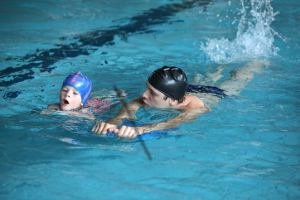30 Minutes of Exercise Can Increase Attention

Does your child with ADHD have a hard time focusing on a task? Going for a jog around the block with her or engaging her in more outdoors playtime could be just what the doctor ordered.
Research shows that physical activity and movement helps increase attention, decision making, and learning. Stephanie Sarkis, PhD, an author and clinical specialist in child and adolescent counseling says, “With physical activity, executive function performance improves in as little as 20 minutes, and ADHD symptoms can reduce in intensity in as little as 30 minutes of exercise.”
Jeffrey Halperin, PhD, studies the effects of exercise and play-based interventions on children with ADHD. He is a distinguished professor of Psychology at Queens College of the City University of New York and a member of the CHADD Professional Advisory Board.
“We know that moving and activity enhances brain function,” he says. “Exercise—in particular, rigorous exercise has been shown to affect a wide array of neurological processes. These kinds of activities enhance brain development and brain growth. The literature… shows that physical exercise increases all aspects of brain development.”
Dr. Halperin cautions that there needs to be a certain amount of structured and organized play.
“It can’t just be running around willy-nilly, and certainly it’s better if there is some directedness to it,” he says, recognizing the need for structure in many children with ADHD. “The degree to which children can use their own creativity and internal directions to help them out with play is great, but having parents involved and directing them in some way is good and will vary as a function of the children’s ages.”
Dr. Halperin and his colleagues have been researching how physically active games benefit children with ADHD. The games teach children impulse control, motor skills, memory, perceptual ability, and physical activity.
“These play-based or exercise-based interventions are not going to be an acute treatment, like stimulant medication,” for ADHD, he explains.
“They’re not going to suddenly take away all the symptoms,” Dr. Halperin says, noting that they may influence the trajectory of the condition and “promote better long-term outcomes for children.”
What do you think about the suggestion that more exercise might help your child pay better attention? Comment now.
Other Articles in this Edition
30 Minutes of Exercise Can Increase Attention
